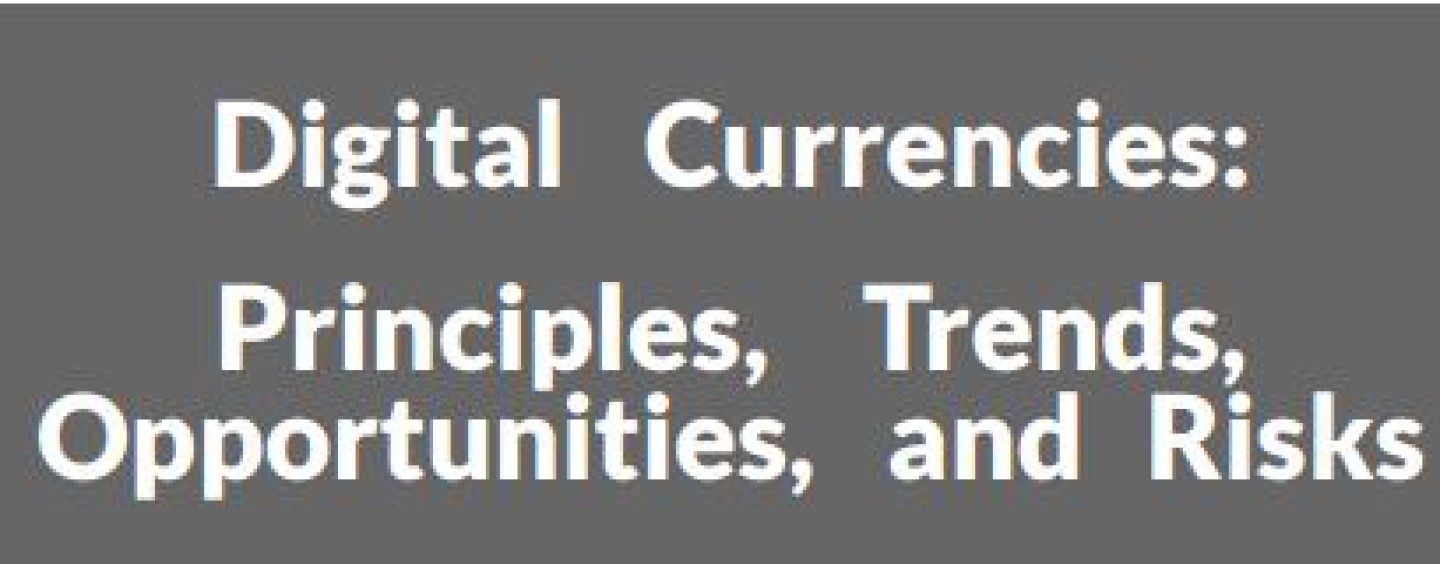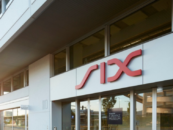Swiss bitcoin startup ECUREX has released an extensive 110-page report on the ongoing innovations in the financial sector brought by digital currencies. Main author is Paolo Tasca, Economist at Deutsche Bundesbank and Executive Director at Ecurex.
Entitled ‘Digital Currencies: Principles, Trends, Opportunities, and Risks,’ the report is aims to be a comprehensive study on digital currencies with a deep quantitative analysis of their technological, entrepreneurial, economic, and legal aspects.
The report is the result of over two years of work and suggests nine key findings.
Larger transactions
During the period of 2011-2015, ECUREX found that the average amount per transaction in USD equivalent, constantly increased. Most importantly, since 2013, it remained larger than in the major payment networks such as Visa, Mastercard, Discover, or Western Union. However, bitcoin‘s daily transaction volume remains the lowest one with approximately US$50 million.
Ripple is the dominant digital currency
Until mid-2014, bitcoin has been the dominant digital currency covering up to 95% of the overall digital currency market in volume. Now, ripple is the dominant digital currency and covers about 10% of the total market capitalization.
China is biggest player
Internationally, China is the largest country per number of active Bitcoin clients, mining capacity and volume of bitcoins exchanged via electronic trading platforms. Since the end of 2014, Chinese mining pools has been covering 50% of the total market share, and since 2014, the traded CNY/BTC volume in is about three times larger than USD/BTC volume.
US$1 billion invested in bitcoin startups
Bitcoin startups raised almost USD 1 billion in three years with an annual investment growth rate of about 150% and represents the fastest growing sector for capital investment.
21 Inc., a startup that develops embeddable bitcoin mining chips, covers over half of the capital raised by the mining industry and is so far the best-funded bitcoin startup with over US$121 million raised in funding. 21 Inc. backers include Andreessen Horowitz, Data Collective, Khosla Ventures, RRE Ventures and Yuan Capital.
Bitcoin exchange platform Coinbase covers one third of the capital raised by the whole Payment & Remittance industry, according to Ecurex.
Decreasing transaction costs
Another finding is that the transaction costs in digital currencies dropped significantly during 2014. Throughout that year, the average fee for a bitcoin transaction decreased from US$0.2 to US$0.1.
Decreasing volatility
Since 2011, bitcoin’s volatility has decreased dramatically. Accordingly, the year 2014 saw fewer incidences and less arbitrage opportunities than the previous years. In effect, the digital currency market is becoming more efficient.
Wealth inequality
The wealth distribution in the bitcoin ecosystem is highly unequal, and this inequality is growing. In fact, the Gini coefficient, a measure of statistical dispersion, grew from 0.09 in 2010 to 0.99 in 2015, from quasi-perfect equality to quasi-perfect inequality.
The research suggests that the increase in inequality is due to the growing popularity of bitcoin and a wallet fragmentation due to security practices.
The bitcoin mining market is an oligopoly
The bitcoin mining market is consolidating as an oligopoly and is currently under control by five to seven major mining pools. Between 2013 and 2015, the report suggests that the cumulative market share of the ten largest mining pools hovered in the 70%-80% range.
Forecast
Finally, the document concludes that there are over 500 available digital currencies at this time. Although bitcoin remains the dominant one in terms of use and capitalization, other digital currencies may start to be largely used as an alternative.
While a currency should typically satisfy the three needs as of being a medium of exchange, a unit of account, and a store of value, reward and loyalty program should be the fourth need.
“In the upcoming digital era characterized by a cashless and a massively connected society utilizing high frequency transnational transactions, we think a currency should satisfy a fourth need which is the maximization of the utility of reward.”
Alongside decentralized cryptocurrencies, partially or fully centralized digital currencies could emerge as some big private corporations and banks, including Samsung, IBM and Citibank, are taking the first steps towards the creation of currency-based environments. Their main purposes: reduce the legacy costs of back-end infrastructures and increase the marketability of their already in-place branded currencies, including loyalty programs, vouchers and credits.
ECUREX predicts:
“In the near future, we foresee the diffusion of community-based digital currencies or ‘brand’ currencies that will serve specific community needs.”
Read the full report: http://papers.ssrn.com/sol3/papers.cfm?abstract_id=2657598







6 Comments so far
Jump into a conversationLove the structure of this article. It is logical and interesting information.
This article’s structure is fantastic. It’s sensible and fascinating information.
The content you have shared is highly valuable and beneficial to the community, since it encompasses a wealth of practical and informative knowledge. Kindly proceed with providing further updates. Thank you for your contribution.
The digital money known as Bitcoin runs on a decentralized network known as blockchain. It was created in 2009 under the pseudonym Satoshi Nakamoto by an unidentified individual. Bitcoin transactions are cryptographically validated by network nodes and entered into a public ledger. Bitcoin is often used as an investment and a way to send money across borders, but its value may be erratic. As of September 2021, when I last updated my knowledge, Bitcoin was becoming more and more well-known as a digital asset and was being used as a payment method by some people and companies. It’s crucial to remember, however, that things can have altered with Bitcoin since then.
As a novice researcher, I found your post to be quite helpful.
I agree that the bitcoin mining market is consolidating as an oligopoly and is currently under control by five to seven major mining pools.